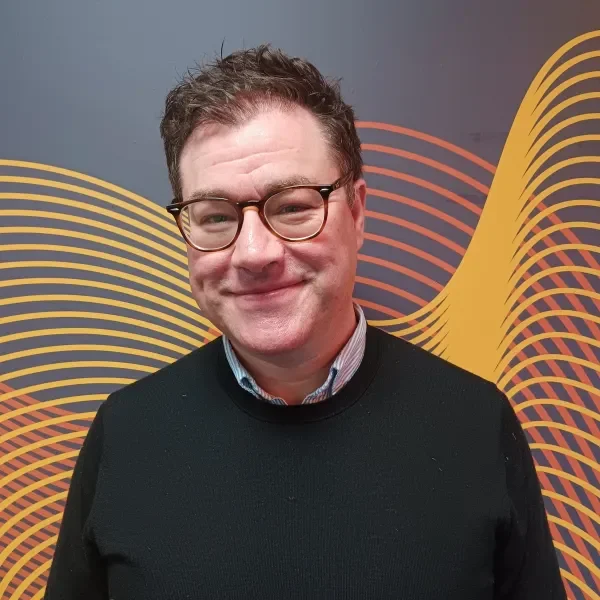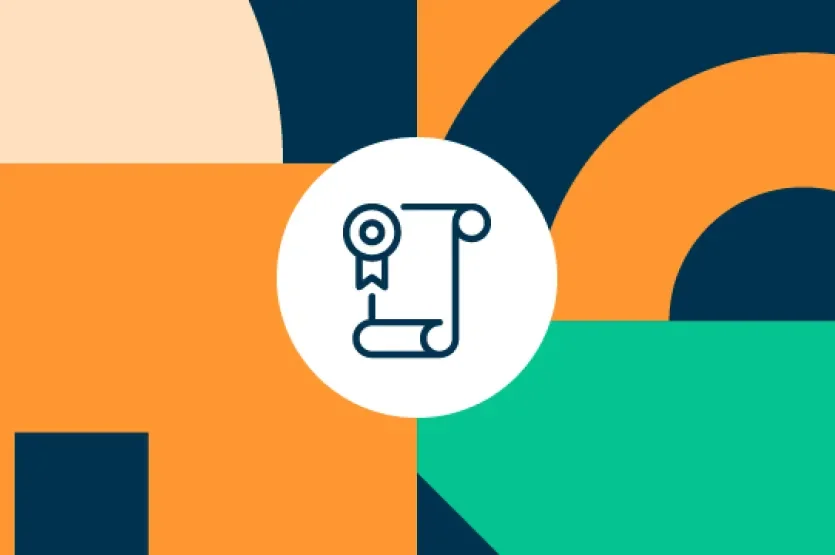Overview
Communicators should also be adept at managing and organising the flow of information amidst the many complex crises we now face on our planet.
In addition to addressing concerns about misinformation, it is vital to involve society in scientific research and to make science more accessible and inclusive. We can achieve this through various means, such as traditional political and community discussions, online platforms, video blogs, news broadcasts, social media, conferences, seminars, policy briefings and even through the lens of science fiction.
All of these methods can help us tackle both the scientific and social aspects of issues such as climate change, pandemics, emerging technologies and our understanding of the world around us.
The postgraduate degree in Science Communication at DCU was founded in 1996 and is well recognised and received in Ireland and abroad. A health communication strand was added in 2018.
Prospective students who are already in careers in STEM education and public engagement, working in scientific, engineering, environmental and medical fields, in addition to those with backgrounds in the humanities and the social sciences who are interested in science communication as a field and a profession.
We also welcome those interested in leadership and communication in the commercial biomedical sector as well as public health policy, administration and regulation, and environmental communication.
Why DCU
DCU People

I chose the MSc in Science and Health Communication as I am regularly involved in developing different types of communication regarding the development and safety of medicines.
Read more about Karl Cogan

Hello, I’m Declan Fahy and I am Chair of the MSc in Science and Health Communication.
Read more about Declan Fahy
Careers & Further Options
Careers
The programme equips students with the skills and knowledge to excel in these varied roles, contributing to the effective communication of science and health-related information in different sectors.
Graduates of the MSc in Science and Health Communication program have pursued diverse and rewarding career paths. They have secured positions in various fields, including:
- Science Public Relations and Information Services: Graduates may work as science communication experts, helping organisations and institutions effectively convey scientific information to the public and media.
- Science Journalism: Some alumni have entered the field of science journalism, reporting on scientific developments and research for newspapers, magazines, online publications, and more.
- Science Broadcasting: Others have found opportunities in science broadcasting, either as on-air presenters or behind-the-scenes content creators for TV, radio, or online platforms.
- Science Teaching: Graduates may choose to become science educators, sharing their knowledge and passion for science in schools, colleges, or educational institutions.
- Science Demonstration and Display: Some alumni may work in science museums, exhibitions, and interactive displays, engaging the public with hands-on science experiences.
- Science Publishing: Opportunities also exist in science publishing, where graduates contribute to the creation and dissemination of scientific content through books, journals, or online publications.
- Web Editing for Science Institutions: With the growth of online content, some find roles as web editors, maintaining and curating scientific information on websites for institutions and organisations.
- Educational Software Authoring: Graduates may create educational software and digital content to make science more accessible and engaging for students of all ages.
"DCU graduates are highly sought after by employers. Our Graduates work in environments ranging from large multinationals to SMEs, family businesses and start-ups across every sector.
DCU Careers Service has a number of learning and development initiatives in place for our students, giving them the skills they need for a successful career path."
Entry Requirements
For admission to the MSc in Science and Health Communication programme, successful applicants will have:
• A degree at the level of an Irish or UK Honours undergraduate degree (H2.2 or above) or equivalent
• Applicants with appropriate combinations of professional qualifications and experience may also be considered. This includes discipline-specific knowledge and know-how; transferable skills; basic research competency; personal effectiveness.
• International candidates who are non-native speakers of English must satisfy the University of their competency in the English language.
Programme Structure
The programme is designed to be flexible, offering both full-time and part-time options. Full-time students complete the programme in one year, while part-time students spread it out over two years.
Students will undertake a combination of core and optional modules. Core modules cover essential topics such as Research Methods, Strategic Communications for STEM, Environment, and Healthcare, Informatics in eHealth, Science and Health in the Media, Data Communication, and Understanding Social Media. In addition to these, there are practical modules like Media and Communication Skills and Making Smartphone Videos.
All students, regardless of their study track, will complete a Major Project or Dissertation as a significant part of their programme. Additionally, students have the opportunity to gain practical experience through a work placement, enhancing their real-world skills and knowledge in science and health communication.
The MSc in Science and Health Communication is housed within DCU's School of Communications, known for its global reputation in teaching and research excellence in media, communications, and journalism. The faculty comprises not only esteemed academic scholars but also seasoned industry professionals.
The groundbreaking research conducted by these faculty members, which is peer-reviewed and internationally recognised, significantly contributes to policy-making in the realms of media, communications, and journalism, both within Ireland and on the international stage. The School of Communications has a rich tradition spanning nearly four decades, and today, it hosts nearly 1,000 students pursuing undergraduate and postgraduate degrees, in addition to those undertaking doctoral research, making it a thriving hub of academic and professional development.
Core Modules
- Research Methods
- Science, Health and Society
- Health Communication
- Science and Health in the Media
- Strategic Communication for STEM, Environment and Healthcare
- MSHC Project/Dissertation
- INTRA work placement: MSHC
Optional Modules (Choose TWO)
- Understanding Social Media
- Social Media, Journalism and Democracy
- Data Communication
- Media Audiences and Consumption
- Gender and Sexuality in Digital Culture
- Political Economy of the Environment
- Communicative Democratic Innovations: Participation and Deliberation
Part-time Year One
Core modules
- Science, Health and Society
- Health Communication
- Science and Health in the Media
- INTRA work placement: MSHC
Optional modules (Choose TWO)
- Understanding Social Media
- Social Media, Journalism and Democracy
- Data Communication
- Media Audiences and Consumption
- Gender and Sexuality in Digital Culture
- Political Economy of the Environment
- Communicative
- Democratic Innovations: Participation and Deliberation
Part-time Year Two
Core modules
- Research Methods
- Strategic Communication for STEM, Environment and Healthcare
- MSHC Project/Dissertation
Fees and Funding
Fees
How To Apply
To apply for this programme:
All Applicants must apply through DCU's Student Application Portal which is available here. Here's a quick step by step guide if you need help with your application.
- Provide Academic Transcripts for each and every year of study with English translation if applicable.
- If applicable, evidence of competence in the English language as per DCU entry requirements. Please see link http://www.dcu.ie/registry/english.shtml.
Application Deadlines
Applications will be accepted on a rolling basis until the programme is full or until the following dates:
- Closing date for non EU applicants is 1st July 2025.
- Closing date for EU applicants is 30th August 2025.
Note applicants who require a study visa for the purposes of studying at DCU, are advised to apply as early as possible.
If you are a non EU applicant and require a study visa, you are not eligible to apply for part-time programmes as study visas are only granted for full-time programmes.
All entry requirements should be met before the commencement of the programme.
Application Queries
For EU applicant queries, please visit https://www.dcu.ie/registry/eu-postgraduate-taught-admissions or email postgraduateadmissions@dcu.ie
For non EU applicant queries, please visit https://www.dcu.ie/registry/international-admissions-undergraduate-and-postgraduate or email internationaladmissions@dcu.ie
Commencement of Programme
The programme commences in September 2025.
Life On Campus
At DCU, our students can expect a unique campus experience. We are known for our excellent teaching and learning facilities, our active clubs and societies, and our great social and sporting facilities. All this makes DCU an exciting place to be.
DCU has three academic campuses; Glasnevin, St. Patrick’s and All Hallows (both in Drumcondra), all close to Dublin City centre.
They can be reached by public transport, Dublin Bus and Bus Éireann, with our Drumcondra campuses a ten minute walk from Drumcondra Train Station. Glasnevin is a 20 minute walk from St Patrick’s and All Hallows. They are also linked by Dublin Bus.
Each campus has a library (O’Reilly, Cregan and Woodlock Hall), study spaces, restaurants, and on-campus residencies. There are sports facilities on Glasnevin and St. Patrick’s, and there is a dedicated sports campus, St Claire’s, located near Glasnevin on the Ballymun Road.
DCU’s 19,000 students have access to exceptional teaching and learning facilities across our three academic campuses.
These include modern learning theatres, research centres, a new media and TV studio, radio/podcast studios, computer suites and advanced labs in the areas of Languages, Engineering, Physics, Chemistry and Biotechnology, as well as a Sports Performance centre and a training hospital ward. In 2021, we opened our first virtual reality ‘Leadership Lab’, which is located in our Business School.
We continue to improve and update our facilities. For example, construction of a new world-class STEM facility is underway on the Glasnevin campus. With capacity for an extra 3,000 STEM students, this facility will advance DCU’s international reputation for excellence in science and health, computing and engineering disciplines.
Studying in DCU isn’t just about course work. The university is rich in student life and activities.
There are more than 140 clubs and societies for students in DCU, with ‘Clubs & Socs’ days taking place on both the Glasnevin and Drumcondra campuses at the start of the academic year. They span everything from rugby to rock climbing, anime to jazz.
For many students, sport is an important part of the DCU experience. DCU’s Sports Complex boasts a 25 metre swimming pool, fitness centre gym, all-weather pitches and squash courts, as well as soccer, GAA and rugby pitches. DCU Dóchas Éireann, the university’s GAA club, is the largest third level Gaelic Games club in the country. Meanwhile, DCU Athletics has been Ireland’s highest achieving university club for many years. And DCU has dozens of other clubs to get involved in, from Archery to Weightlifting.
The Glasnevin campus is home to our purpose built, state-of-the-art student centre, The U, which serves the needs of a rapidly growing student body. Here, you will find the Student Leadership and Lifeskills Centre, performing arts and cultural spaces for students and the wider community, and the Entrepreneurship and Innovation Hub. Also located on our Glasnevin campus is The Helix, our renowned performing arts centre.
On our St Patrick’s campus, we have the Java Student Hub, a vibrant, warm and welcoming space where students can meet for coffee, play music, use the projector to watch events, or just relax. The walls of the Java Hub were designed based on the cultural history of St Patrick’s Campus, including the special references to the notable sporting history and history of the arts.
We have a number of academic, professional and social supports for students.
Student Advice & Learning Skills Centre - Offers a wide range of supports and services to students and advice
The Writing Centre - drop-in writing workshops for students through the academic year
Maths Learning Centre - provides maths support for students of all ability levels with maths modules
Student Learning - facilitate the transition from passive to active learning for students at DCU, by teaching study skills, nurturing critical thinking and building student confidence.
Careers work with students to help them on their professional journey into graduate employment.
Our student support team offers a comprehensive support programme, helping students make that all important transition into university life and focusing on building confidence and skills which are key to success at third level.

DCU Glasnevin Campus
FAQs
Is DCU all one campus?
DCU is a multi campus university - the Glasnevin, St Patrick's and All Hallows campuses. The St Patrick's campus is where the Education courses are taught and some of the subjects from the BA Joint Honours degree. There is a 20-25 minute walk between the campuses but there are buses and bikes available to go between them also.
Click here to see maps of all of our campuses
If I'm studying on the St Patrick's campus, can I use the library and sports centre on the Glasnevin campus?
Yes, all facilities such as sports and accommodation are open for all DCU students to avail of.
Are there libraries in DCU and if they have wifi and work stations?
We have a brand new state of the art four floor library on our St. Patrick's Campus which complements the existing library on the Glasnevin campus. There is free wifi, work stations as well as desktop computers.
Does DCU provide accommodation?
DCU does have on-campus accommodation for undergraduate and postgraduate students, and you can find out more and apply via the Accommodation Office webpage.








